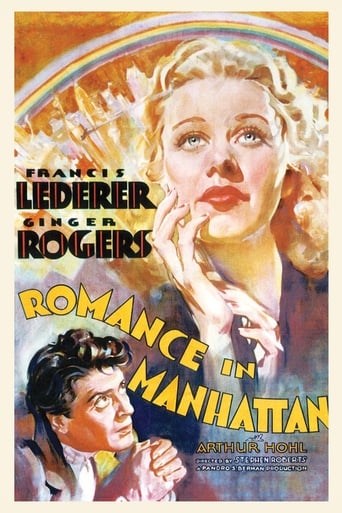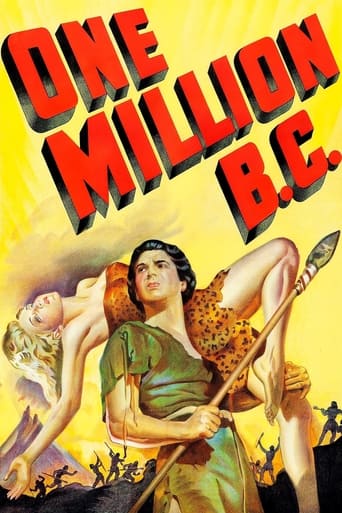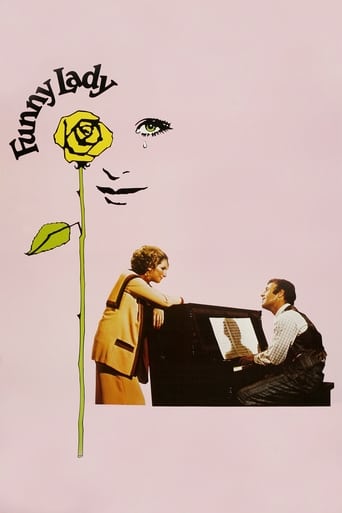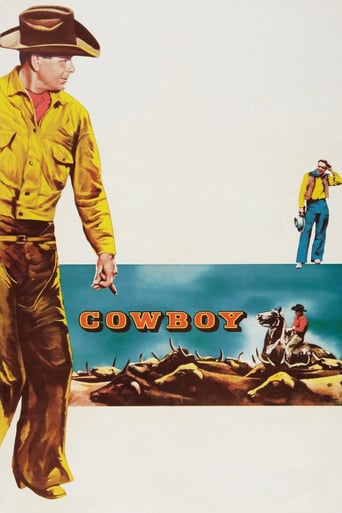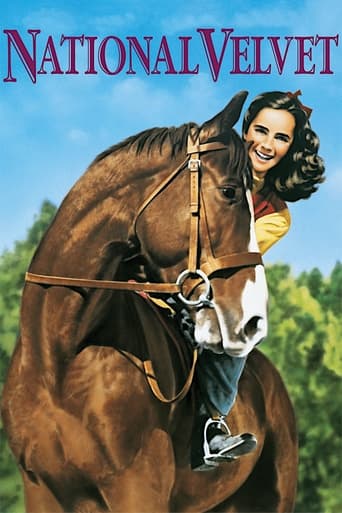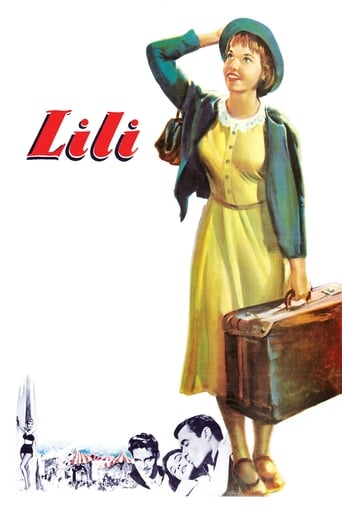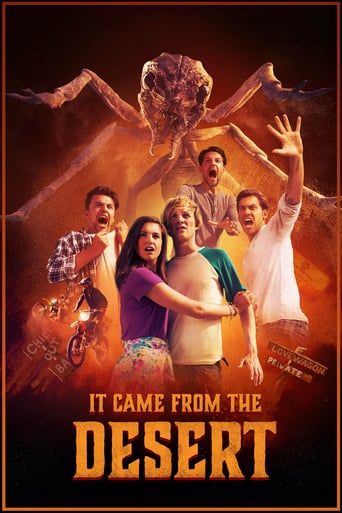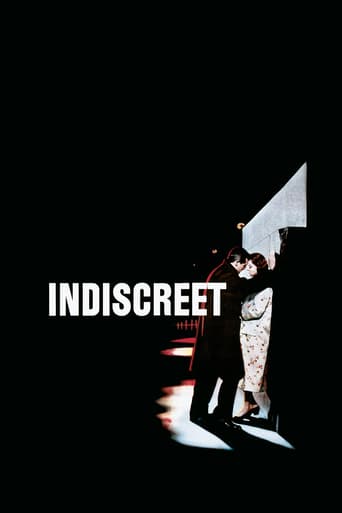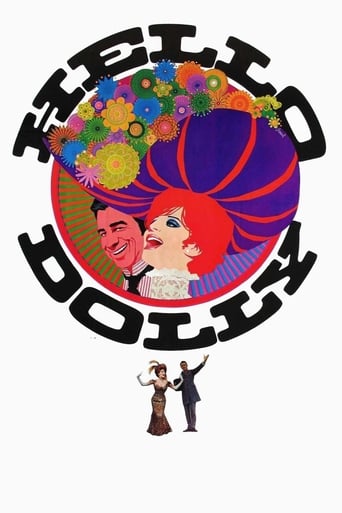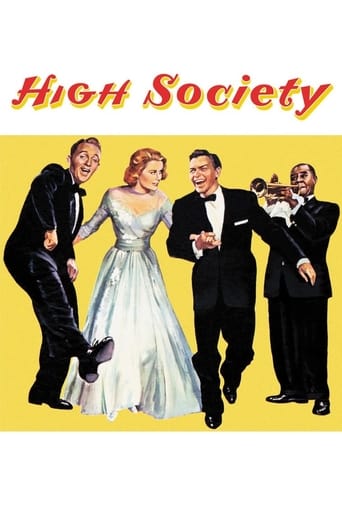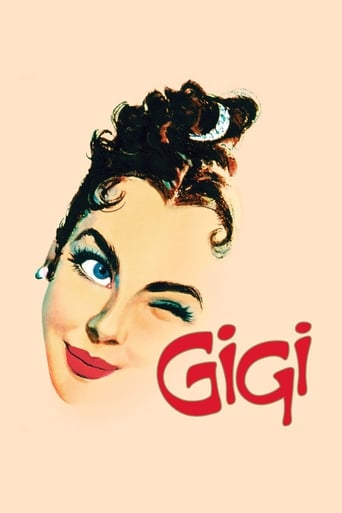


Gigi
A home, a motorcar, servants, the latest fashions: the most eligible and most finicky bachelor in Paris offers them all to Gigi. But she, who's gone from girlish gawkishness to cultured glamour before our eyes, yearns for that wonderful something money can't buy.
-
- Cast:
- Leslie Caron , Maurice Chevalier , Louis Jourdan , Hermione Gingold , Eva Gabor , Jacques Bergerac , Isabel Jeans


Similar titles
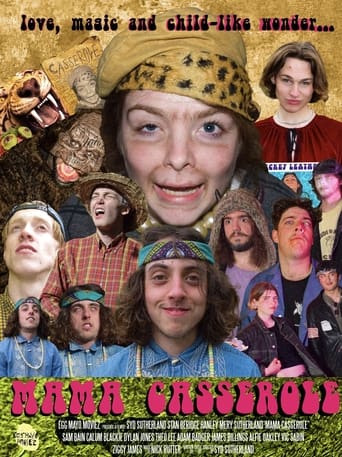
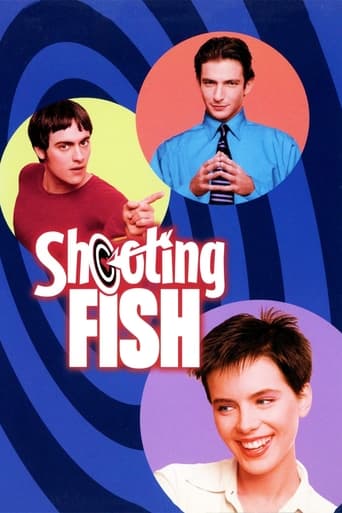
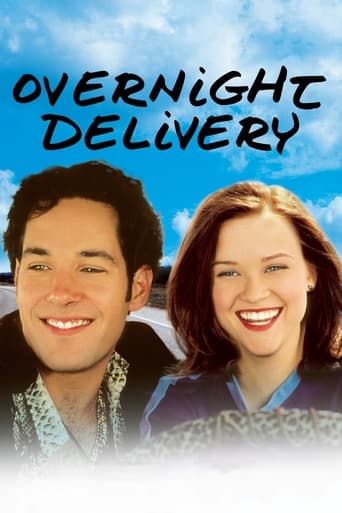
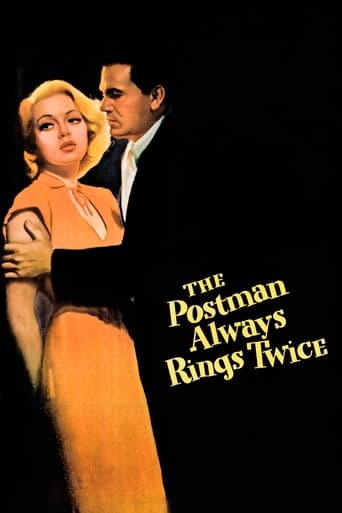
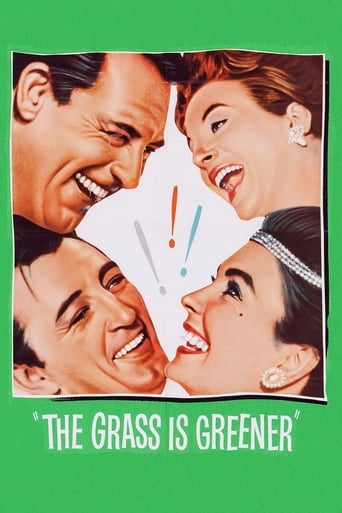
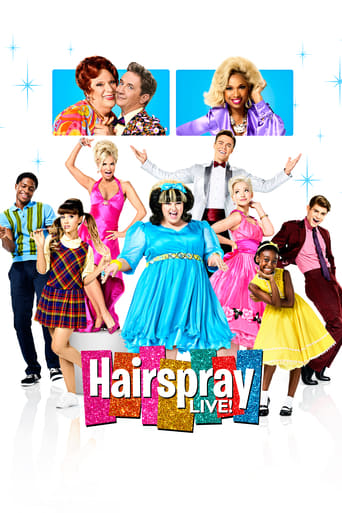
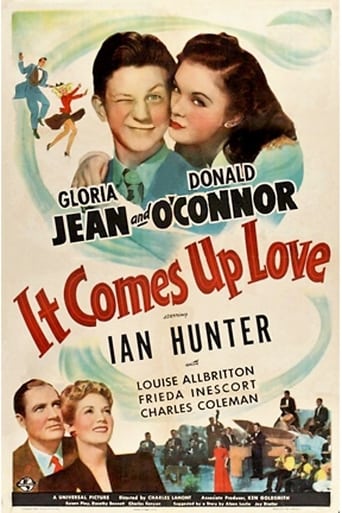
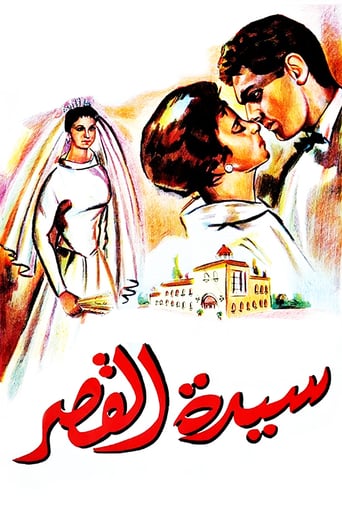
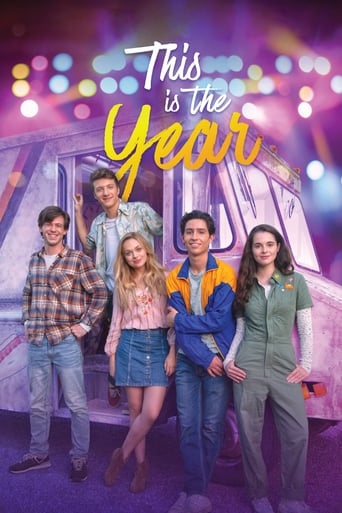
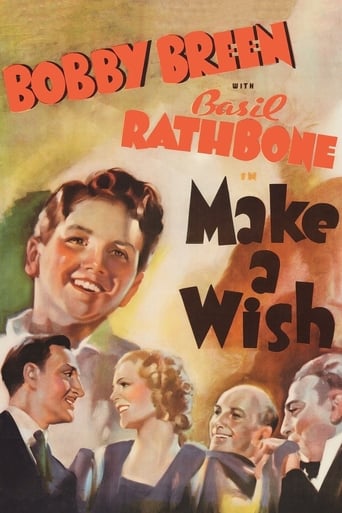
Reviews
Best movie of this year hands down!
Redundant and unnecessary.
The performances transcend the film's tropes, grounding it in characters that feel more complete than this subgenre often produces.
A terrific literary drama and character piece that shows how the process of creating art can be seen differently by those doing it and those looking at it from the outside.
Are you kidding me! A 6.8 rating! This is aesthetically and craft wise one of the top 50 films ever, subjectivity aside. The rules and styles of the society in which the story takes place, and of the times of the filming may not be what they are now. Nevertheless, like Moliere or Shakespeare, or a Rembrandt, this is timelessly excellent.
Costumes to die for (the iconic white dress!), set design that transports you to another world, music that will stay with you long past the end and a romance for the ages. What more could you ask for?
Like "My Fair Lady", "Gigi" is a musical with lyrics by Alan Jay Lerner and music by Frederick Loewe. The two films are set in major European capitals (Paris and London) at around the same period in history (1900 and circa 1910). Both feature an older man/younger woman romance set against the background of high society. In "My Fair Lady" the female lead is played by Audrey Hepburn and in "Gigi" by the nearest thing Hollywood possessed to a Hepburn clone, Leslie Caron. (Hepburn herself, who had played Gigi in a non-musical stage adaptation of Colette's novella, was offered the role but turned it down). In both films the leading lady's voice is dubbed by a professional singer but the leading man's is not, although neither Rex Harrison nor Louis Jourdan had a great singing voice; both essentially recite their songs rather than singing them. One difference is that "My Fair Lady" is based on a Broadway musical whereas "Gigi" (like "Calamity Jane" and some other musicals) started life as a film and became a stage production later. The film opens with Honoré Lachaille, an elderly upper-class roué, drooling over the charms of "leetle girls" who "get beeger every day". One of those "leetle girls" is Gigi, who is being trained by her terrible old grandmother Madame Alvarez and her even more terrible Great Aunt Alicia to become a courtesan, a word which in this context doesn't quite mean "high-class call girl" but certainly means "gold-digging professional mistress". The man they have lined up as Gigi's lover is Honoré's wealthy nephew Gaston, a sugar-daddy in the most literal sense as his fortune derives from his family's sugar-refining business. (In the original novella Gigi's full name was "Gilberte", but this is never used in the film). Gigi's parents don't seem to have much say in their daughter's future; we learn that her mother, who is heard but never seen, is a not-very-successful opera singer and never see or hear anything of her father.Yes, I know what you're thinking. Given that the Production Code was still in force in 1958, what on earth were the American censors thinking of when they allowed this sleazy story onto the silver screen? The producer Arthur Freed apparently managed to persuade the Hays Office that the story condemned sexual exploitation, something that would probably have come as news to Colette, never first in to bat for the Moral Majority and never in a hurry to condemn anything of a sexual nature, had she still been alive in 1958. The story seems even tawdrier when you consider that most of the characters are completely amoral; when Gaston learns that one of his discarded mistresses has attempted suicide he and Honoré regard this as grounds for celebration rather than regret. Gigi herself, who manages to preserve a belief in true love, is a partial exception, but even she sees true love in terms of becoming Gaston's gold-digging professional wife rather than his mistress. (It might have been more interesting had she found true love with a worker in Gaston's factory). Something which might trouble modern viewers more than it did audiences in 1958 is that we never learn exactly how old Gigi is. Caron was 27 at the time, and Hepburn would have been 29, but I think we can assume that Gigi is much younger than this, probably still a teenager. (A would-be courtesan who is still a virgin in her late twenties is definitely a slow starter). At times, indeed, particularly in the early scenes, Gigi comes across as being more thirteen-going-on-fourteen than sixteen-going-on-seventeen, which makes her romance with the thirty-something Gaston seem decidedly creepy. Hepburn's Eliza Doolittle may have been considerably younger than Harrison's Professor Higgins, but at least she was an adult woman capable of knowing her own mind. And what were the Academy thinking of when they showered this film with so many Oscars? It was nominated for nine Academy Awards and won all of them, although it was not nominated in any acting categories. (Nine Oscars for one film was a record at the time, but one which only lasted a single year until it was beaten by "Ben-Hur"). Admittedly, some of these were well-deserved, such as "Best Costume Design"; Cecil Beaton's costumes are certainly sumptuous. "Best Musical Score" for Andre Previn also seems fair enough, and some of the songs are pretty good. I have always hated "Thank Heaven for Little Girls"; Lerner's only excuse is that in 1958 it probably sounded more innocent, and less like the Official Anthem of the Paedophile Liberation Front, than it does today. I liked, however, the gay and vivacious "The Night They Invented Champagne" and "I Remember It Well" is not only amusing but also surprisingly touching as Honoré and Madame Alvarez recall- in his case not always accurately- their long-ago love affair. (Honoré may be an old rogue, but at least Maurice Chevalier makes him a lovable rogue). But "Best Picture" and "Best Director" for Vincente Minnelli? There were, in fact, some excellent films made in 1958. My own vote for "Best Picture" would have gone to William Wyler's masterful "The Big Country", but there was also Hitchcock's "Vertigo", "The Defiant Ones" and the British-made "Ice Cold in Alex". I know that in the fifties the Academy looked down on Westerns, didn't understand Hitch, disliked anything with an anti-racist message and overlooked anything British, but compared to films of this calibre- or for that matter to the far superior "My Fair Lady"- "Gigi" just looks like frothy trivia. 6/10A goof. Honoré says that he was "not born in this century". As the year is 1900, which was the last year of the nineteenth century, not the first year of the twentieth, he almost certainly was "born in this century"- unless he is supposed to be over 100 years old.
It's the start of 20th century Paris. Honoré Lachaille (Maurice Chevalier) is an old cynical playboy. His nephew Gaston (Louis Jourdan) is a famous womanizer and bored with everything except his friendship with Madame Alvarez (Hermione Gingold) and her young fun-loving granddaughter Gigi (Leslie Caron). Gigi is sent to her Great Aunt Alicia (Isabel Jeans) to be groomed as a courtesan. Gaston and Gigi wish to have their old relationship but are forced to change.Alan Jay Lerner delivers a 'My Fair Lady'-like script. In fact, it's sold based on Lerner-Loewe's Broadway success. The visual is a brightly-colored over-the-top extravaganza. There are great catchy tunes like "I Remember It Well" and "Thank Heaven for Little Girls". However, this is too broad. It's too stage-like in its execution at times. This is a big French meal that is too rich for my taste.

